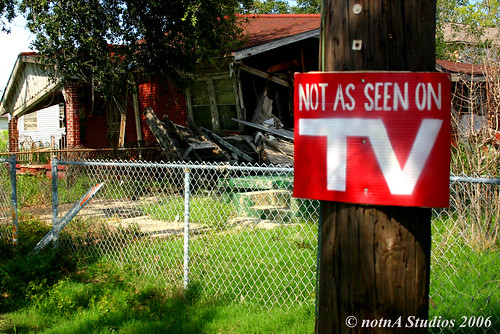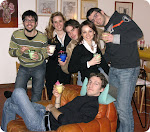 image from notna
image from notnaThis week our American partners are enjoying their spring-break so there was no Skype exchange last Wednesday :( By the way, we can use the time at our disposal to discuss on the wiki and to find an interesting question about America and the way of living of its inhabitants. It seems a very easy task, but I'm pretty confused: there is so much I would like to know about a country that I started dreaming of when I was just a child and watched Superman’s unbelievable adventures on the TV. Yes, the TV. In spite of the coming of the Internet, a very powerful technology that has revolutionized the whole concept of “communication” by providing a way to know everything happening in the world, I think that television still remains the most influential of all the tools of knowledge. Why? Because it is something that everybody can use easily, whenever they want, without the need to read the directions; something that posses an infinite range of strategies to let a message pass and spread; most of all, something that has become part of our own culture and has accompanied us everyday since we were babies. For those of us who don’t have the chance to spend part of their time travelling around the world, television is also their eye on reality: using a remote control, you can dive in the depth of the ocean to discover beautiful submarine landscape and just a moment later you are walking in a fashion house in Los Angeles, wondering whether Brooke and Ridge will get married for the third time or not. TV series and films offer us portrays of American life, but is this reality? Are American men as lazy and slovenly as Homer Simpson? Are all Californian girls blonde, rich and spoilt? Is life in a university campus all about parties, brotherhoods and initiation rites? I don’t think so, yet I have to recognize that my idea of America is partially influenced by the stereotypes I learn from television. Reading my friends’ answers to the questionnaires on the Cultura website, I could observe that many of them share the same idea of what life is like in the USA and this is another proof of the way in which TV programmes are able to handle our opinions and expectations about the other. Therefore, I think it could be interesting to ask Dickinson students if they watch the same programmes and if TV really reflects their own life. As one of the members of my group pointed out, it would be interesting to know if shows and films influence the way in which Americans view Italians as well and, if so, what aspects of Italian culture are emphasized. I’m sure that both of us, our American colleagues and we Italian students, would discover to look at each other through glasses made of prejudices and commonplaces that this exchange can help us to remove. The meeting with Chiara Olivi is a clear example of what I’m talking about: in my opinion, she’s a very nice and outgoing girl, devoted to her studies and eager to know everything she can about the world, just like anyone of us. We have to abandon old preconceptions and be ready to recognize that reality has many more shades and facets than what TV let us perceive.





Nessun commento:
Posta un commento